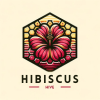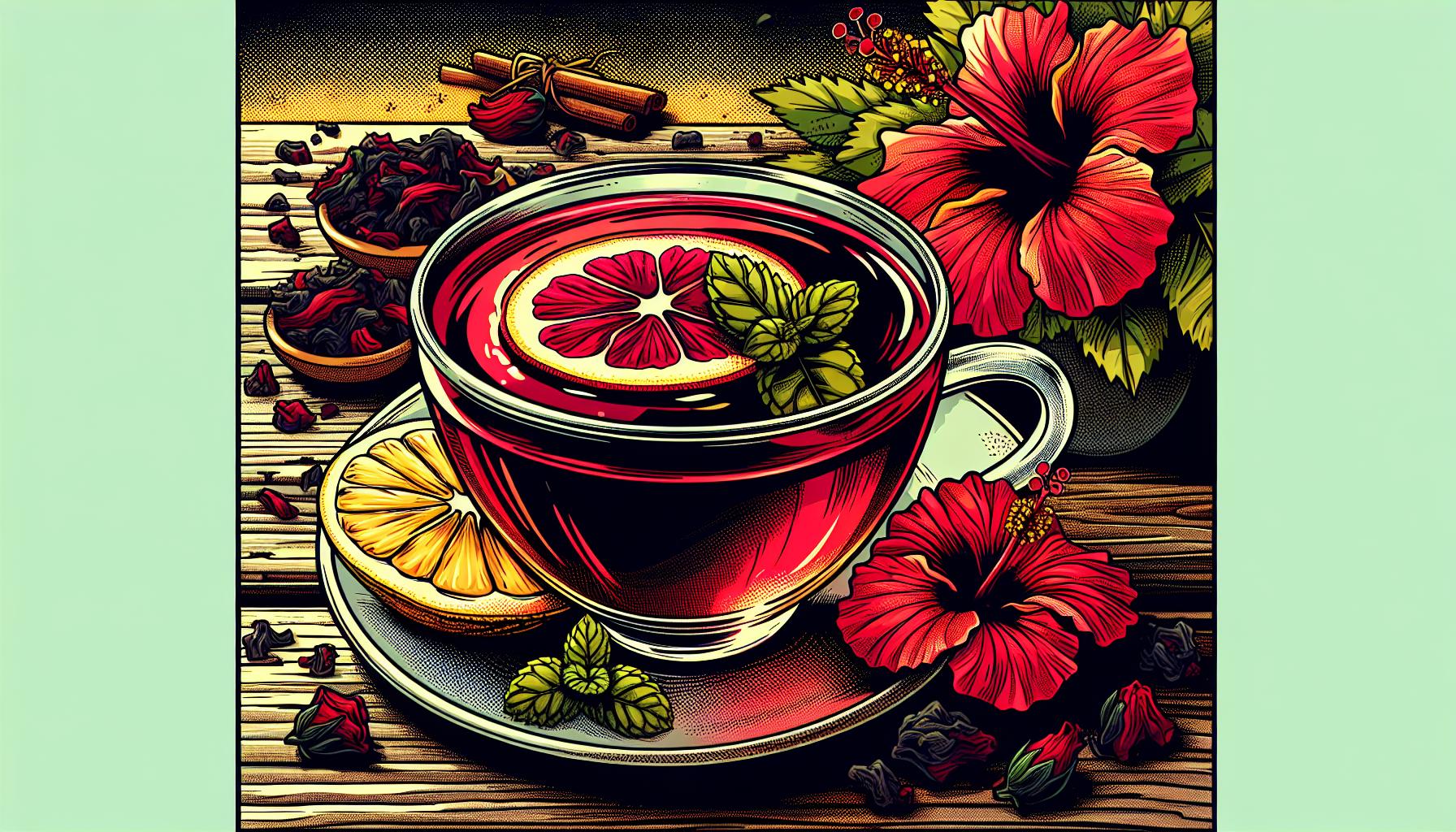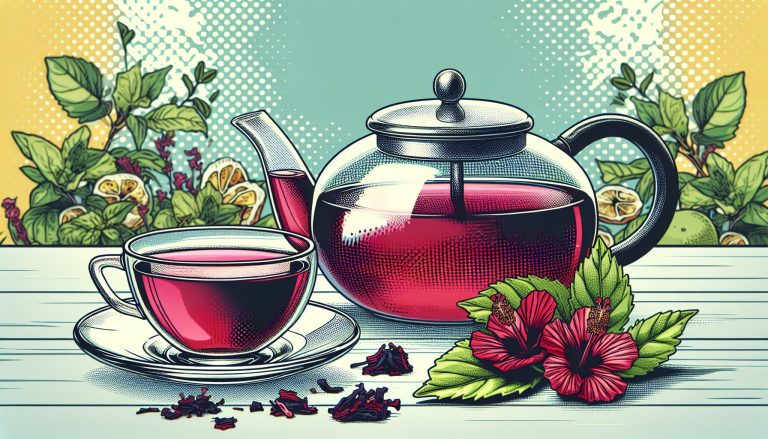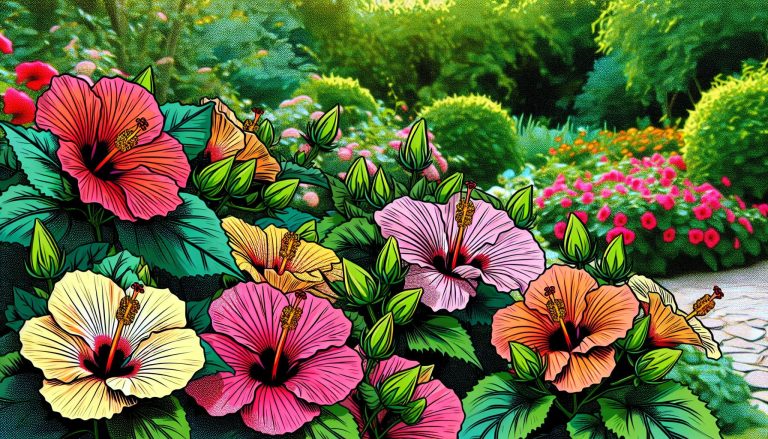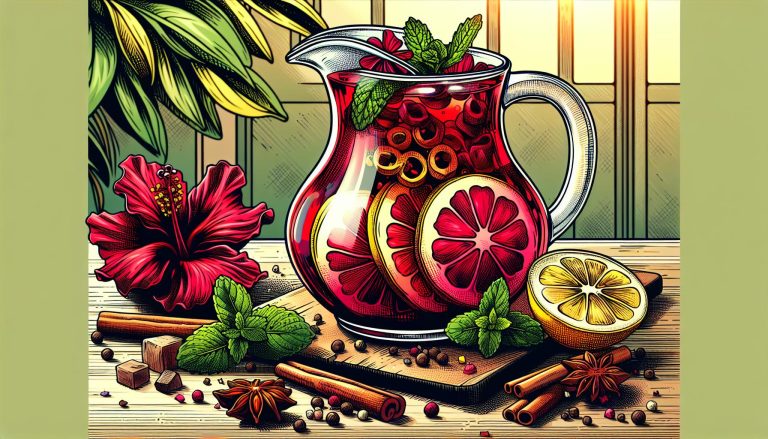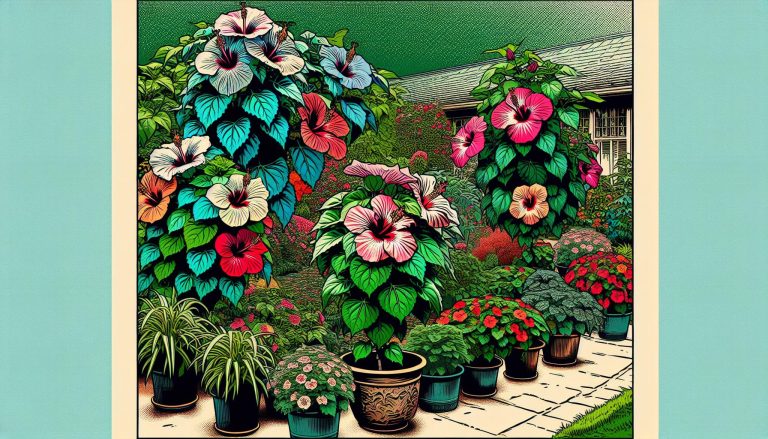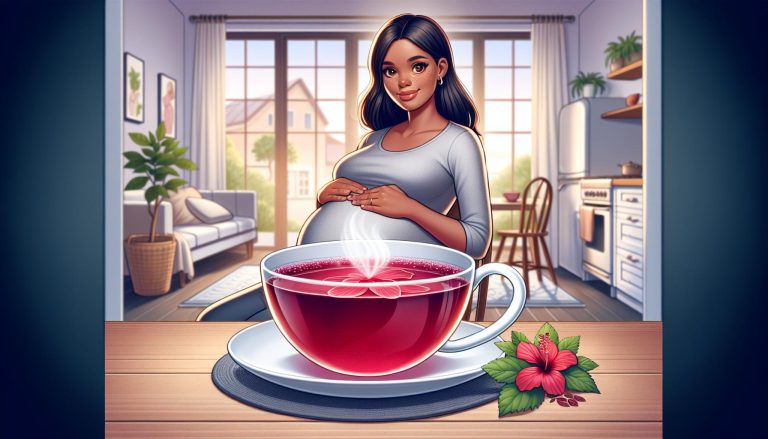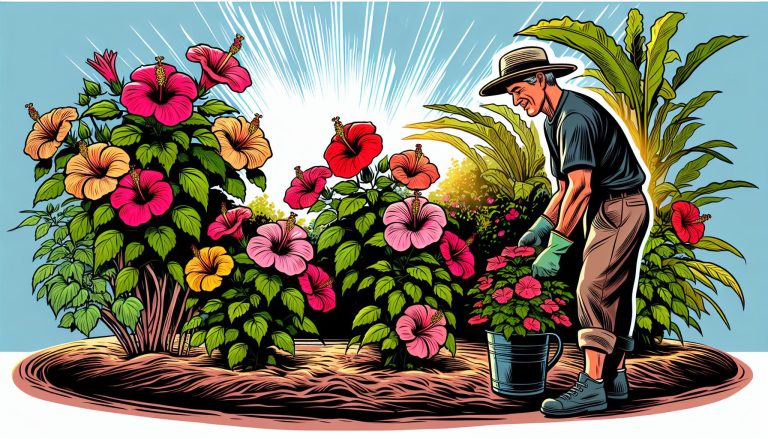Hibiscus Tea: A Caffeine-Free Alternative? Discover the Truth About This Herbal Brew
As a passionate tea enthusiast, I’ve often wondered about the caffeine content in various herbal infusions. Hibiscus tea, with its vibrant red color and tart flavor, has become increasingly popular among health-conscious individuals. But does this floral brew pack a caffeinated punch?
I’ve delved into the world of hibiscus to uncover the truth about its caffeine content. Whether you’re looking to reduce your caffeine intake or simply curious about this trendy beverage, you’ve come to the right place. In this article, I’ll explore the facts surrounding hibiscus and caffeine, helping you make informed decisions about your tea choices.
What Is Hibiscus?
Hibiscus is a flowering plant belonging to the mallow family, Malvaceae. It’s renowned for its large, colorful flowers and is cultivated worldwide for both ornamental and culinary purposes.
Origins and Varieties of Hibiscus
Hibiscus originated in warm, tropical, and subtropical regions around the world. There are over 300 species of hibiscus, with notable varieties including:
- Hibiscus sabdariffa: Known as roselle, it’s commonly used for making hibiscus tea
- Hibiscus rosa-sinensis: The Chinese hibiscus, popular as an ornamental plant
- Hibiscus syriacus: Also called the rose of Sharon, native to east Asia
- Hibiscus moscheutos: The swamp rose mallow, native to North America
These diverse varieties showcase the plant’s adaptability to different climates and its wide-ranging uses in various cultures. From the Americas to Africa and Asia, hibiscus has played significant roles in traditional medicine, cuisine, and horticulture.
The Composition of Hibiscus Tea
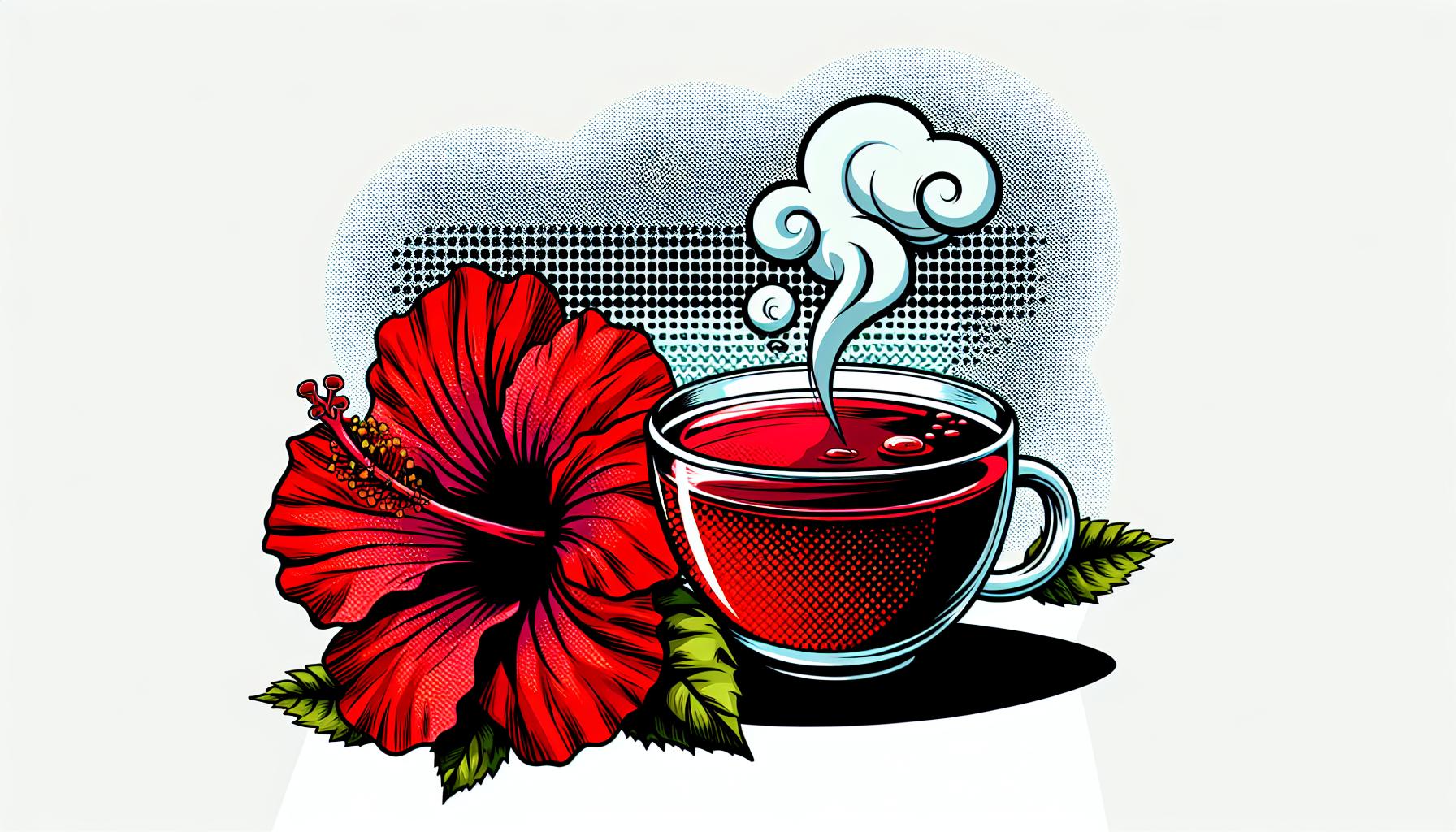
Hibiscus tea’s unique composition sets it apart from other herbal infusions. I’ve researched its key components to provide a clear understanding of what makes this vibrant beverage so special.
Key Nutrients and Compounds
Hibiscus tea boasts a rich array of beneficial compounds:
- Anthocyanins: These potent antioxidants give hibiscus its deep red color.
- Vitamin C: A powerful immune-boosting nutrient found in high concentrations.
- Organic acids: Citric, malic, and tartaric acids contribute to the tea’s tart flavor.
- Polyphenols: Plant compounds with antioxidant properties that support overall health.
- Minerals: Including calcium, iron, and potassium for various bodily functions.
| Nutrient | Benefit |
|---|---|
| Anthocyanins | Antioxidant protection |
| Vitamin C | Immune system support |
| Organic acids | Flavor enhancement |
| Polyphenols | Overall health promotion |
| Minerals | Essential bodily functions |
These components work synergistically to create hibiscus tea’s unique flavor profile and potential health benefits.
Does Hibiscus Have Caffeine?
Hibiscus tea is naturally caffeine-free. Unlike traditional teas derived from the Camellia sinensis plant, hibiscus tea is an herbal infusion made from the dried calyces of the hibiscus flower, containing no caffeine.
Debunking Common Misconceptions
Many people mistakenly believe hibiscus tea contains caffeine due to its vibrant color and energizing effects. Here are some common misconceptions:
- Color indicates caffeine: The deep red hue of hibiscus tea often leads people to assume it contains caffeine. In reality, this color comes from anthocyanins, not caffeine.
- Energy boost equals caffeine: Some associate the refreshing feeling after drinking hibiscus tea with caffeine. This energy boost is actually due to its vitamin C content and natural sugars.
- All teas contain caffeine: While true for traditional teas, herbal infusions like hibiscus are caffeine-free unless blended with caffeinated ingredients.
- Tart flavor implies caffeine: The tart taste of hibiscus tea is sometimes confused with the bitterness of caffeine. This flavor comes from organic acids in the plant, not caffeine.
- Diuretic effect means caffeine: Hibiscus tea’s mild diuretic properties are often attributed to caffeine. However, this effect is due to its natural compounds, not caffeine.
Health Benefits of Caffeine-Free Hibiscus Tea
Hibiscus tea offers numerous health benefits without the added effects of caffeine. Its natural composition provides a range of advantages for those seeking a healthful beverage option.
Antioxidant Properties
Hibiscus tea’s high antioxidant content combats free radicals in the body. These antioxidants, primarily anthocyanins and flavonoids, protect cells from oxidative stress and inflammation. Research shows that regular consumption of hibiscus tea may help reduce the risk of chronic diseases, including certain cancers and heart conditions. The tea’s antioxidant capacity even surpasses that of some common fruits and vegetables, making it a potent addition to a balanced diet.
Potential Heart Health Benefits
Hibiscus tea supports cardiovascular health through multiple mechanisms. Studies indicate that regular consumption may help lower blood pressure in individuals with mild hypertension. The tea’s polyphenols and organic compounds contribute to improved lipid profiles, potentially reducing bad cholesterol levels while increasing good cholesterol. Additionally, hibiscus tea’s anti-inflammatory properties may help protect blood vessels from damage, promoting overall heart health and reducing the risk of cardiovascular diseases.
How to Prepare and Enjoy Hibiscus Tea
Selecting Quality Hibiscus
I always start with high-quality hibiscus flowers or tea bags. Look for organic, whole dried hibiscus flowers or reputable brands of hibiscus tea bags. The flowers should have a deep red color and a fresh, slightly fruity aroma.
Brewing Methods
Hot Brew
- Boil water in a kettle
- Place 1-2 teaspoons of dried hibiscus flowers or 1 tea bag per cup in a teapot
- Pour boiling water over the flowers or tea bag
- Steep for 5-7 minutes
- Strain the tea into cups
Cold Brew
- Add 1/4 cup of dried hibiscus flowers to 4 cups of cold water
- Refrigerate for 8-12 hours
- Strain the tea and serve over ice
Flavor Enhancements
To elevate your hibiscus tea experience, try these additions:
- Honey or agave nectar for sweetness
- Lemon or lime slices for extra tartness
- Fresh mint leaves for a refreshing twist
- Cinnamon stick or ginger slices for warmth
Serving Suggestions
Serve hot hibiscus tea in clear glass mugs to showcase its vibrant color. For iced tea, use tall glasses filled with ice and garnish with citrus slices or mint sprigs. Pair hibiscus tea with light snacks like fruit salad or shortbread cookies to complement its tart flavor.
Storage Tips
Store dried hibiscus flowers in an airtight container in a cool, dark place. Brewed hibiscus tea keeps in the refrigerator for up to 3 days. For longer storage, freeze the tea in ice cube trays and use in future cold beverages.
Comparing Hibiscus to Caffeinated Beverages
When I compare hibiscus tea to popular caffeinated beverages, the differences become apparent. Hibiscus tea stands out as a caffeine-free alternative, offering unique benefits without the stimulant effects of caffeine.
Caffeine Content Comparison
Hibiscus tea contains 0 mg of caffeine per 8-ounce serving. In contrast:
| Beverage | Caffeine Content (mg per 8 oz) |
|---|---|
| Coffee | 95-200 |
| Black Tea | 14-70 |
| Green Tea | 24-45 |
| Cola | 24-46 |
| Energy Drinks | 70-80 |
This stark difference in caffeine content makes hibiscus tea an excellent choice for those seeking to reduce or eliminate caffeine intake.
Energy and Alertness
While caffeinated beverages provide a quick energy boost, hibiscus tea offers a different kind of pick-me-up. Its natural sugars and vitamin C content can provide a refreshing feeling without the jitters or crashes associated with caffeine consumption.
Hydration Effects
Caffeinated beverages have mild diuretic properties, potentially leading to increased fluid loss. Hibiscus tea, being caffeine-free, doesn’t have this effect. It contributes to daily fluid intake without the risk of dehydration, making it an excellent choice for maintaining proper hydration.
Sleep Impact
Unlike caffeinated drinks that can interfere with sleep patterns when consumed late in the day, hibiscus tea doesn’t disrupt sleep cycles. It’s a soothing evening beverage option that won’t keep you up at night.
Health Benefits Comparison
Caffeinated beverages like coffee and green tea offer health benefits due to their antioxidant content. Hibiscus tea matches up well in this regard:
- Antioxidants: High levels comparable to other herbal teas
- Heart health: Potential to lower blood pressure and improve lipid profiles
- Inflammation: Anti-inflammatory properties that may benefit overall health
While caffeine itself has some health benefits, hibiscus tea provides its advantages without the potential drawbacks of caffeine consumption.
Conclusion
Hibiscus tea stands out as a caffeine-free alternative that doesn’t compromise on flavor or health benefits. It’s a versatile beverage that can be enjoyed hot or cold offering a refreshing taste without the jitters associated with caffeinated drinks. Whether you’re looking to reduce your caffeine intake manage your sleep schedule or simply explore new flavors hibiscus tea is an excellent choice. I hope this deep dive into hibiscus tea has provided you with valuable insights to make informed decisions about your beverage choices. Enjoy your next cup of hibiscus tea with the confidence of knowing exactly what’s in your mug!
